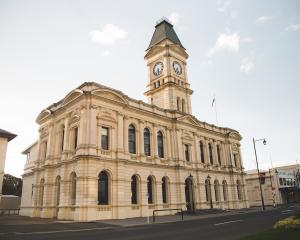Oamaru-based Whitestone Cheese created about 5kg of deer's cheese in June, after it was approached to take part in a joint project conducted by Otago and Lincoln Universities. The company's general manager, Simon Berry, said although it was still ''early days'' in the trial process, there was potential for the cheese to be very popular in the lucrative Asian health-food market.
Mr Berry said if a supply of deer milk could be established, the rewards from the Asian market were potentially ''very beneficial''.
''There is some good potential there and we would accommodate that if we could get a supply of milk, but the next challenge is how to milk deer.
''This milk came from Lincoln University. They had some deer there that had been handled from little babies, so they would be placid. I think what they are working on next is how to commercially milk deer.''
Mr Berry said that it was ''great'' that universities were investigating the sort of innovations that could have ''huge'' economic flow on effects to local communities.
''The university contacted us with the concept and the milk, so we obliged and made some cheese.''
''It has definitely got some different characteristics. That's why we're pressing it off and ageing it. That's a safer bet for flavours. It's a very rich milk.''
Otago University senior lecturer Dr Alaa El-Din A Bekhit said previous studies had shown that venison meat stayed healthy longer than other meat, and it was ''well-known'' deer velvet had therapeutic properties.
''Also deer blood is very common in Southeast Asia, and is taken for therapeutic purposes or just for improving the health aspects of someone - so why not milk?'' Dr Bekhit said.
Test tube experiments conducted as part of a recent PhD programme had shown that the health and bioactive properties of the milk were very high, he said.
Because the milk was high in fat and protein, any resulting cheese would ''be very different'' from regular cow's or goat's cheese.
Cheese made from donkey milk, which also had high bioactive properties, recently sold for $1800 a kg in Serbia, but deer's milk had even more potential, he said.
He added that one hind could produce 200 litres of milk each season, so a single animal could provide a farmer with an income of $20,000.
''That should be good news to deer farmers,'' he said.
So far, tests on the milk had only been conducted in the laboratory, but he hoped funds would become available to conduct further research to confirm the health benefits of deer's milk in the future.
The Otago Daily Times understands similar experiments, on a much larger scale, have been taking place for the past two years in Central Otago.
The venture is being kept under wraps at this stage.andrew.ashton@odt.co.nz










